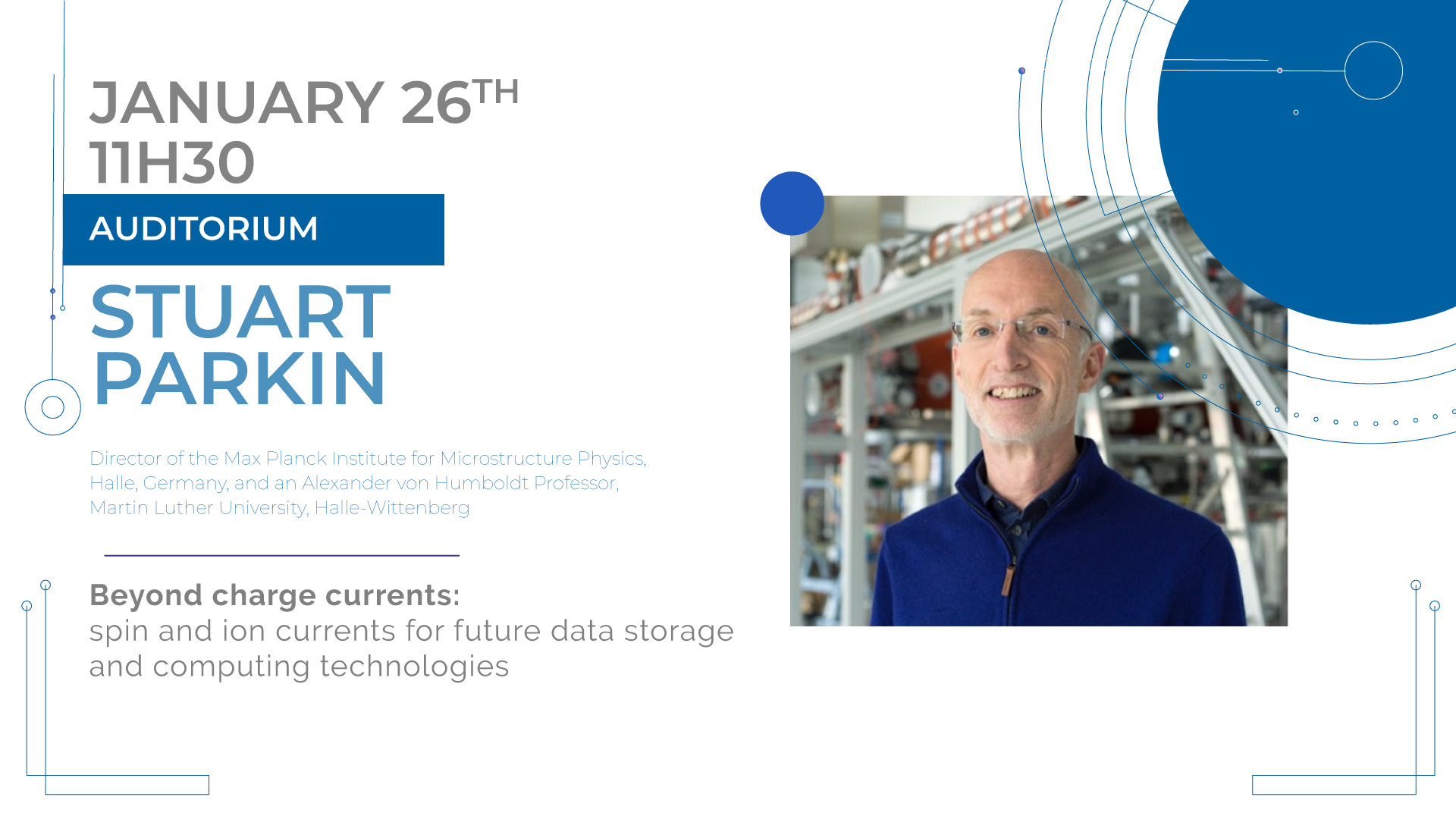INL Colloquium with Prof. Dr. Stuart Parkin, Director of the Max Planck Institute for Microstructure Physics
During the kickoff event of the Funlayers Project, we had the pleasure of hosting a talk by Prof. Dr. Stuart Parkin, Director of the Max Planck Institute for Microstructure Physics.
With the title “Beyond charge currents: spin and ion currents for future data storage and computing technologies”, Prof. Dr. Stuart Parking talked about how the era of computing technologies based on charge currents is coming to an end after more than forty years of exponential increases in computing power and data storage that have been largely based on shrinking devices in two dimensions. A new “Beyond charge!” era will evolve over the next decade and will likely be based on several new concepts. Firstly, devices whose innate properties are derived not from the electron’s charge but from spin currents as well as from ion currents. In some cases, new functionality will arise that can extend charge-based devices, but in other cases, fundamentally new computing and data storage paradigms will evolve. Secondly, devices will inevitably become three-dimensional: novel means of constructing devices, both from bottom-up and top-down, will become increasingly important. Thirdly, bio-inspired devices that may mimic the extremely energy-efficient computation systems in the biological world are compelling. In this talk, he focused on spintronics, namely, spin current-based phenomena and devices and discussed the past, present and future of spintronic technologies.
Stuart Parkin is a Max Planck Institute for Microstructure Physics Director in Halle, Germany, and an Alexander von Humboldt Professor at Martin Luther University, Halle-Wittenberg. His research interests include spintronic materials and devices for advanced sensor, memory, and logic applications, oxide thin-film heterostructures, topological metals, exotic superconductors, and cognitive devices. Parkin’s discoveries in spintronics enabled a more than 10000-fold increase in the storage capacity of magnetic disk drives. For his work that thereby enabled the “big data” world of today, Parkin was awarded the Millennium Technology Award from the Technology Academy Finland in 2014 and, most recently, the King Faisal Prize for Science 2021 for his research into three distinct classes of spintronic memories. Parkin is a Fellow/ Member of the Royal Society (London), Royal Academy of Engineering, National Academy of Sciences, National Academy of Engineering, German National Academy of Science - Leopoldina, Royal Society of Edinburgh, Indian Academy of Sciences, and TWAS - academy of sciences for the developing world and has received numerous awards from around the world.

